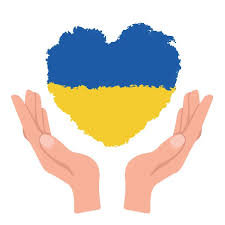Lawyer
Legal aspects of ensuring the rights to freedom of movement for persons in the occupied territories
Freedom of movement is one of the fundamental human rights, which provides the opportunity to move freely both within one's country and outside its borders. However, for persons living in the occupied territories, the realization of this right often faces serious restrictions and violations. In this article, we will consider the main legal aspects of ensuring the rights to freedom of movement for such persons.
Consultation of a lawyer: the first step to the protection of rights
The first step in protecting the rights to freedom of movement is consulting a lawyer. The lawyer will provide the affected persons with detailed information about their rights and possible legal actions. Consulting a lawyer will help you understand what documents are needed to prove violations of the right to freedom of movement and what steps should be taken to restore it. The lawyer will also explain which international and national norms regulate this right and how they can be applied in a specific case.
Analysis of documents: an important stage in case preparation
Document analysis is a key step in preparing for the protection of freedom of movement rights. Such documents may include passports, visas, travel permits, proof of residence registration and other documents confirming identity and the right to travel. The analysis of documents allows the lawyer to assess the legality of the client's claims and collect the necessary evidence base for further legal actions.
Legal opinion: basis for further actions
After analyzing the documents, the lawyer prepares a legal opinion. This document describes the legal situation in detail, identifies violations of the right to freedom of movement and provides recommendations for their restoration. The legal opinion contains references to relevant norms of national and international law regulating freedom of movement. This document is the basis for submitting complaints to authorities, lawsuits and other legal actions.
Legal opinion of a lawyer: defense in court and other instances
If the case goes to court, the lawyer's legal opinion becomes a key tool. The lawyer not only prepares this document, but also represents the client's interests in court, provides evidence and arguments in his favor. The lawyer's legal opinion includes a detailed analysis of the legal norms that were violated and a defense strategy. The lawyer can also apply to international judicial authorities, such as the European Court of Human Rights, for additional protection of the client's rights.
Practical aspects of ensuring the rights to freedom of movement
In addition to the legal aspects, it is important to consider the practical aspects of ensuring the rights to freedom of movement. This can be cooperation with human rights organizations, appeals to the ombudsman, public campaigns to draw attention to the problem. The support of the international community, which can exert diplomatic pressure on the occupying power to ensure respect for human rights, is also important.
Conclusions
Ensuring the rights to freedom of movement for persons in the occupied territories is a complex and multifaceted process. Consultation of a lawyer, analysis of documents, preparation of legal and legal opinions are important stages that ensure effective protection of the rights of victims. Cooperation with human rights organizations, international bodies and attracting public attention are necessary components of a comprehensive approach to solving this problem. Only the combined efforts of various subjects can ensure the restoration of violated rights and the protection of the dignity of persons living in the occupied territories.

































